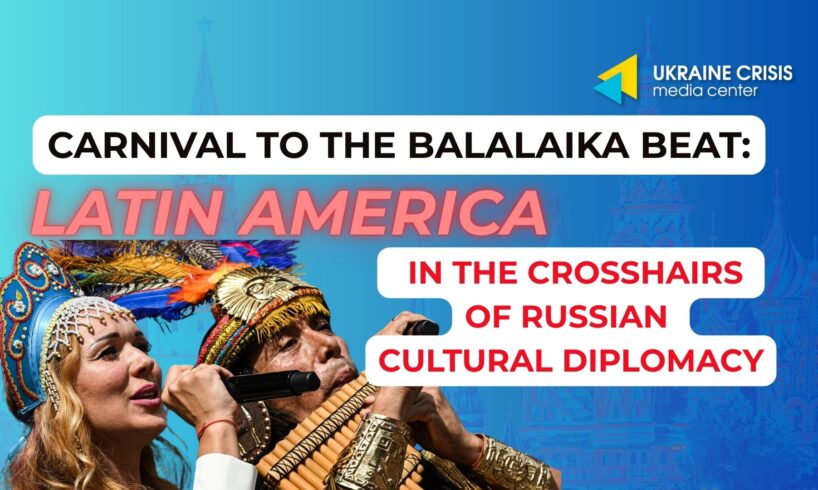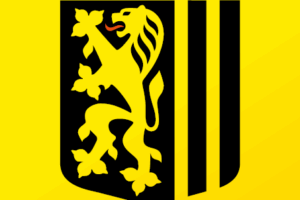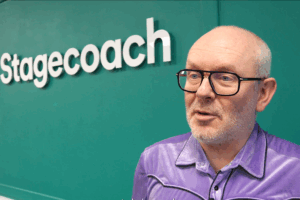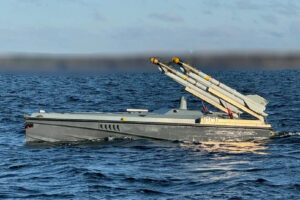
The fourth annual Festival of Latin American and Caribbean Cultures took place in Moscow from July 19 to 27, 2025. The opening gala was held on the main stage in the Hermitage Garden, with representatives of the Moscow city government and the diplomatic corps from across Latin America and the Caribbean in attendance. Among the guests were Elena Kudryavtseva, Deputy Director of the Russian Foreign Ministry’s Latin America Department, and Peru’s Ambassador to Russia, Juan Genaro del Campo Rodríguez. According to the organizers, ambassadors and diplomats from Argentina, Bolivia, Venezuela, Guatemala, the Dominican Republic, Colombia, Costa Rica, Mexico, Ecuador, Uruguay, El Salvador and Chile were also on hand for the ceremony.
Festival poster
The festival’s programme comprised a cultural programme, including performances by famous artists from Cuba, Argentina, Ecuador, Colombia, Paraguay, Venezuela and other countries, an educational part with lectures by diplomats and cultural activists, screenings of films from the region, and much more.
The Moscow Festival of Latin American Culture has become not just an entertaining event, but also a sophisticated tool of public diplomacy. The goal of the event, announced by the organisers, is to «strengthen humanitarian ties between Russia and the countries of the region», which indicates that the Kremlin is deliberately using culture as a means of soft power.
In the context of the radical reshaping of the world order that is taking place in the 2020s, Moscow has developed a strong geopolitical interest in Latin America as a potential partner region. According to the updated 2023 Russian Foreign Policy Concept, Russia intends to develop relations with the countries of the region, taking into account the growing role of these countries on the world stage, on a pragmatic and mutually beneficial basis.
At the ideological level, Russia’s strategy in Latin America is based on the concepts of «multipolarity» and resistance to Western «hegemony». The declared shared principles – allegedly respect for state sovereignty, non-interference in internal affairs, and multilateralism – have become one of the «secrets of mutual understanding» between Moscow and Latin American states. The legacy of their own experience of fighting colonialism and the dictates of the great powers makes Latin American societies open to the Russian narrative of countering neocolonialism and the «dictatorship of the collective West».
Vladimir Putin at the opening of the Russia-Latin America conference in Moscow in 2023
At the same time, the Kremlin’s doctrine on Latin America is devoid of excessive romanticism – it is characterised by pragmatism and flexibility. Moscow understands that the countries of the region are very different in terms of their national interests and political discourses, so it is not trying to impose a rigid ideological agenda on them, as it was in the Soviet Union. Russia’s strategy is based on finding common interests where there are opportunities for this, avoiding the requirement of public loyalty if partners prefer to remain neutral on certain issues (for example, the Russian-Ukrainian war).
Russia has built a multi-level toolkit in Latin America to achieve its goals. The Kremlin actively holds summits and forums with the participation of Latin American countries. Although Russia’s total trade turnover with the countries of the region is still more modest than with the EU or China, trade, investment, and energy projects remain an important channel of influence. Russia exports fertilisers, grain and petrochemicals to the region, and imports food and raw materials. Some projects are geostrategic in nature, such as Russian companies’ involvement in oil production in Venezuela or exploration of lithium deposits in Bolivia.
Special mention should be made of military-technical cooperation: since the end of the Cold War, Moscow has supplied weapons and equipment to Cuba, Peru, Venezuela, Nicaragua and other countries. Now, due to sanctions and competition, direct sales of new weapons are difficult, so the focus has shifted to servicing existing equipment and training personnel.
Russia has also significantly stepped up its media expansion into the Spanish-speaking world. In particular, the international multilingual channels RT en Español and Sputnik Mundo radio have gained great popularity among Latin American audiences. According to surveys, RT and Sputnik’s Spanish-language resources are among the most quoted on social media in the region. Thus, Moscow does not give up its attempts to shape public opinion in the region.
RT en Español has been broadcasting since 2009
Since the Soviet era, Russian (Soviet) universities have hosted hundreds of students from Cuba, Peru, Colombia and other countries – a tradition that continues today in the form of state scholarships to study in Russia. As of the current year, up to 5,000 students from Latin America and the Caribbean are studying in Russian universities. It is worth reminding that Moscow has a University of Peoples’ Friendship, where representatives of dozens of countries, including Latin America, study. The Institute of Latin America of the Russian Academy of Sciences is also involved in scientific and expert diplomacy and the establishment of horizontal ties. The Rossotrudnichestvo agency, through the network of Russian Centres for Science and Culture, organises Russian language courses, cultural events, Russian film days, exhibitions, etc. in the region’s cities.
Russia is building a strategic soft power base in Latin America. Through the cultural sphere – music, cinema, education, and personal contact – Moscow is trying to reduce the distance with the distant continent. The key challenge remains Western competition for influence in Latin America. The success of this strategy will depend on whether Moscow is able to turn the accumulated credibility into real political and economic gains.
Mykyta Kuzmenko




